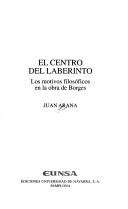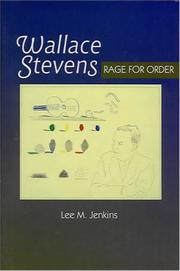
ISBN: 9788431312756 8431312750 Year: 1994 Publisher: Pamplona: Eunsa,
Abstract | Keywords | Export | Availability | Bookmark
 Loading...
Loading...Choose an application
- Reference Manager
- EndNote
- RefWorks (Direct export to RefWorks)

ISBN: 1902210336 Year: 2000 Publisher: Brighton : Sussex academic press,
Abstract | Keywords | Export | Availability | Bookmark
 Loading...
Loading...Choose an application
- Reference Manager
- EndNote
- RefWorks (Direct export to RefWorks)
Book
ISBN: 3876906369 Year: 1996 Publisher: München : Sagner,
Abstract | Keywords | Export | Availability | Bookmark
 Loading...
Loading...Choose an application
- Reference Manager
- EndNote
- RefWorks (Direct export to RefWorks)
Book
ISBN: 5867931722 Year: 2002 Publisher: Moskva : Novoe literaturnoe obozrenie,
Abstract | Keywords | Export | Availability | Bookmark
 Loading...
Loading...Choose an application
- Reference Manager
- EndNote
- RefWorks (Direct export to RefWorks)
Dissertation
ISBN: 3884796534 Year: 1992 Publisher: Würzburg : Königshausen und Neumann,
Abstract | Keywords | Export | Availability | Bookmark
 Loading...
Loading...Choose an application
- Reference Manager
- EndNote
- RefWorks (Direct export to RefWorks)
Book
ISBN: 9785920803320 Year: 2009 Publisher: Moskva : IMLI RAN,
Abstract | Keywords | Export | Availability | Bookmark
 Loading...
Loading...Choose an application
- Reference Manager
- EndNote
- RefWorks (Direct export to RefWorks)
Book
Year: 2022 Publisher: Cambridge, United Kingdom : Cambridge University Press,
Abstract | Keywords | Export | Availability | Bookmark
 Loading...
Loading...Choose an application
- Reference Manager
- EndNote
- RefWorks (Direct export to RefWorks)
"It is widely agreed that Parmenides invented extended deductive argumentation and the practice of demonstration, a transformative event in the history of thought. But how did he manage this seminal accomplishment? In this book, Benjamin Folit-Weinberg finally provides an answer. At the heart of this story is the image of the hodos, the road and the journey. Brilliantly deploying the tools and insights of literary criticism, conceptual history, and archaeology, Folit-Weinberg illuminates how Parmenides adopts and adapts this image from Homer, especially the Odyssey, forging from it his pioneering intellectual approaches. Reinserting Parmenides into the physical world and poetic culture of archaic Greece, Folit-Weinberg reveals both how deeply traditional and how radical was Parmenides' new way of thinking and speaking. By taking this first step toward providing a history of the concept method, this volume uncovers the genealogy of philosophy in poetry and poetic imagery"-- Provided by publisher.
Book
Year: 2022 Publisher: Boston ; Berlin : De Gruyter,
Abstract | Keywords | Export | Availability | Bookmark
 Loading...
Loading...Choose an application
- Reference Manager
- EndNote
- RefWorks (Direct export to RefWorks)
What is the connection between philosophical enquiries and storytelling in contemporary narrative? Is it possible to outline some features of a so-called philosophical fiction in Western literature throughout the last two centuries? This book aims to provide multi-disciplinary insight on this long-standing issue and to give a plural answer, hosting extensive essays by seven young researchers coming from different fields.
Book
Year: 2013 Publisher: [Place of publication not identified] : Firenze University Press,
Abstract | Keywords | Export | Availability | Bookmark
 Loading...
Loading...Choose an application
- Reference Manager
- EndNote
- RefWorks (Direct export to RefWorks)
In the first pages of the Zibaldone, Leopardi had noted that the "love of learning" induces a passion for philosophy, making it a foundational element of modern culture. In this perspective, then, no doubt remains as to the prominent position of Voltaire’s Candide, or of Rousseau’s thought, which combines philosophical thinking, educational demands, political passion and autobiography. However, in order to move from the count to the novel, from the apologue and from the treatises to complex characters who also maintain a strong and speculative allure, one had to leave the 18th century, experience Romanticism, feed the rêveries of the new promeneurs solitaires during the following century, with the restlessness and the questions of Dostoevsky, Kafka, Sartre, Camus, and of Pirandello, Proust, Musil and many others; of those who combined the passion for short stories with the unmasking of any deceptive theodicy. Bringing the the novel back to bourgeois intertwining and existential anxieties, starting from Cervantes’s ironic way of thinking. In the absence of declarations, however, where does one find the evidence of the presence of the philosophique in the novel, or how does one identify texts pertaining to the definition of roman philosophique? This book, conceived and edited by Anna Dolfi, does not only raises the problem, but tries to solve it as well. At the same time, it brings the ideas of the novel and from the novel together with constructive theories, and compares the insignificant with significance, mythical emblems and codes, semiosis and destiny, while also observing how language, in the parade of the authors, changes itself and even touches the figurativeness of the graphic-novel. This volume constitutes the final point of arrival of a path which, in samples, locks significant fragments in the otherwise infinite kaleidoscope of narration.
Book
ISBN: 9780190493219 9780190905859 Year: 2021 Publisher: New York Oxford University Press
Abstract | Keywords | Export | Availability | Bookmark
 Loading...
Loading...Choose an application
- Reference Manager
- EndNote
- RefWorks (Direct export to RefWorks)
This text shows how Seneca's prose works offer both an illustration of and an invitation to philosophy as a way of life. In Seneca's hands, the specificity of the philosopher's social and historical location becomes generative of that way of life rather than an obstacle to be transcended. The social character of Senecan philosophical practice is brought to light through detailed examination of the ideas of solitude and independence in Seneca's writing. Later chapters explore the relationship in Seneca's works between the Socratic ideal of the examined life, on the one hand, and, on the other, some characteristically Roman social and political institutions: slavery, the philosophical school, and the commonwealth. Seneca emerges as a keen observer of philosophy's social entanglements.

 Search
Search Feedback
Feedback About
About Help
Help News
News